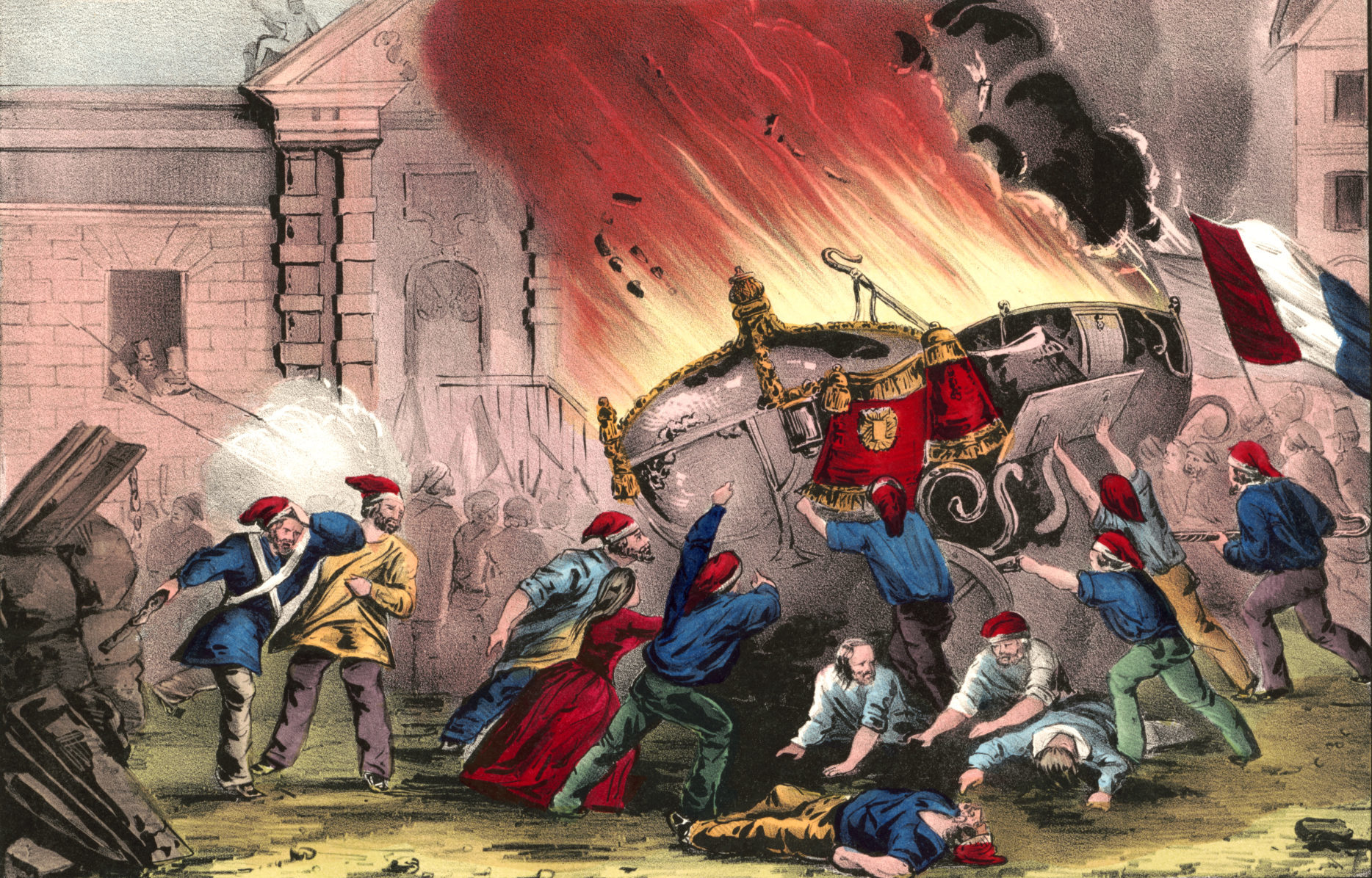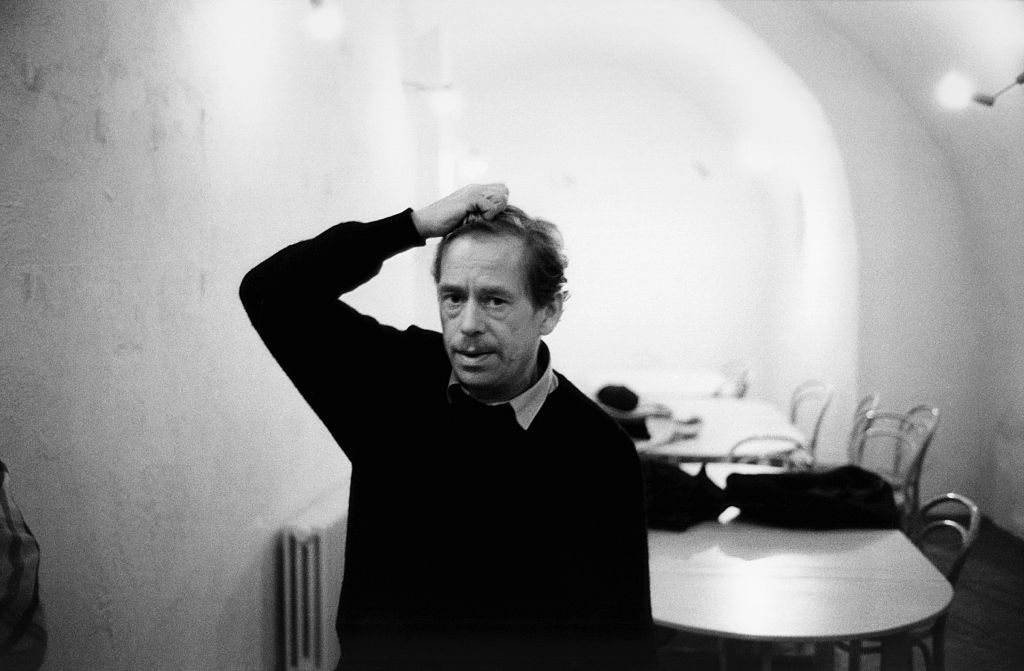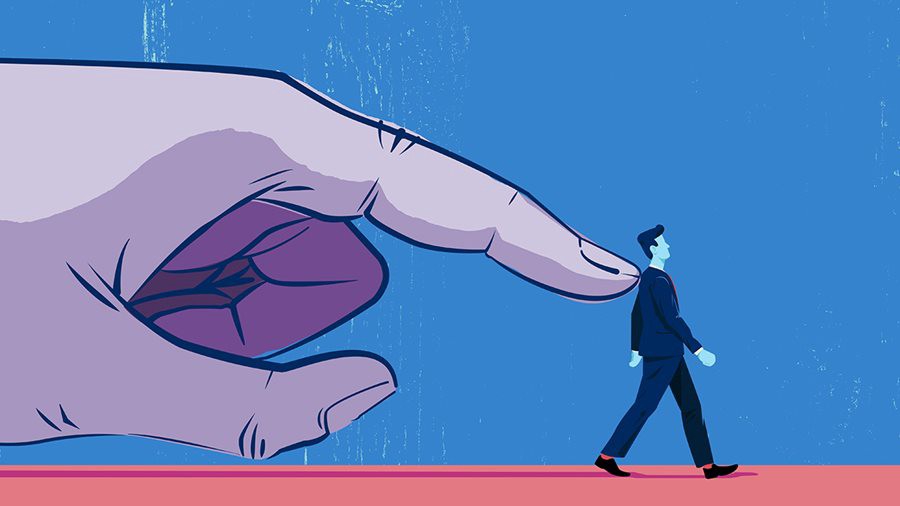The civic framework of freedom.
Rights Here, Rights Now

How to keep modern liberalism from eating itself alive.
The political history of the Western world, from its Christianization in the first centuries of the present era to its secularization in the most recent one, can be written as the history of individualism. It began with the revolutionary idea that people ought to be considered primarily as individual souls rather than as members of earthly communities: “There is neither Jew nor Gentile, neither slave nor free, nor is there male and female, for you are all one in Christ Jesus.” (Galatians 3:28). All political and cultural affiliations, while maintained and recognized under the dominion of Caesar, were subsidiary to the sacred communion of individuals before God.
This radical individualism became the major philosophical impulse of political modernity when it was progressively stripped of its spiritual nature to become a political statement about the nature of man on earth. A strain of modern natural law theory was born in which the basis of all political constructions is the human individual, born with individual rights that precede any political existence. Ontologically, the political community became second to individuals and their rights. Gradually, politics took on a new and increasingly exclusive purpose: the recognition, protection, and promotion of individual rights through positive law.
So too was the main philosophical insight of classical thought forgotten: that man is, essentially, a political animal and that the individual as conceived by modern thought since Hobbes “must either be a beast or a god”—that is, not a real human but a false model of one.
Excessive emphasis on individual rights always ends up jeopardizing the political conditions that makes them possible, a lesson brutally retaught by the French Revolution. As Tocqueville noted, among the three main revolutions of Western modernity, only France’s failed to install a sound and durable regime, because it was the only one which refused to make any concessions to premodern principles. The British attachment to monarchy and traditional jurisprudence, and the American attachment to associative life and religious piety, fostered individualistic ideals revealed through and compatible with human experience, not revolutionary will or conjecture. To realize how far the French Revolution strayed from human experience into philosophical abstraction, one needs only look at some of the laws passed by the revolutionary regime. For instance, the 1791 Le Chapelier law which abolished professional corporations stated that
there is no longer a corporation in the State; there is only the particular interest of each individual, and the general interest. No one is allowed to inspire citizens with an intermediate interest, to separate them from public affairs by a corporate spirit.
Reaction against this kind of individualistic puritanism was a major matrix of political and philosophical thinking in 19th-century France. Recovering the profoundly and intrinsically social nature of man was the work of counterrevolutionary thinkers such as Joseph de Maistre and Louis de Bonald. Their major insights were then recovered and developed by the pioneers of socialist thought, who reinterpreted them in the sense of a progressivist political theory rather than a reactionary one.
Are we then condemned to choose between renouncing all individualistic principles in the name of their anthropological incoherence or giving them over to the total management of the State? Is there a way to limit the excessive proliferation of rights, with all their corrosive and atomistic effects, without renouncing modernity and individualism as a whole? Such is, in many ways, the dilemma of the “liberal conservative”: liberalism cannot be allowed to win, yet it is not desirable to see it defeated.
From Tocqueville to Manent
Daniel Mahoney astutely highlights the importance of Pierre Manent’s works for navigating these fundamental issues. Manent is one of the last great French conservative philosophers. As Mahoney points out, the richness of his philosophy does not rest only in his talent as a diagnostician of modern democracy’s tragic nature but also in his constant refusal to abandon democracy to its fate. In this regard, he is the worthy heir of Tocqueville, who embodied better than anyone the fruitful negotiation between modern individualism’s inherent limits and the numerous possible ways it can be made politically viable.
Besides his own tremendous talent and intelligence, Tocqueville’s analysis owed much to his position as a privileged witness of the passage from the Ancien Régime to modern democracy. As an aristocrat and intellectual, Tocqueville had an intimate knowledge of the richness, depth, and value of the pre-democratic social and political relationships which he called the “chains of solidarity.” As a committed partisan of democracy, he believed in the value of individualist ideals, of the importance of free will and individual choice. His commitment to democracy was thus anything but naïve, because he knew what was being left behind and the dangers that lay ahead.
If there is a conservative lesson to be taken from Tocqueville, it is the necessity to be constantly aware of the fundamentally fragile nature of modern democracies, which rely on ideals that are not obviously natural to human society. More importantly, as French anthropologist Louis Dumont showed, we ought never to confuse these ideals with an accurate description of human nature—to believe that they naturally have ontological substance. This kind of “immanentization of the ideal,” which Dumont showed in Homo Hierarchicus (1967), is a permanent temptation of modern political thinking, for which the evident perfection of these ideals justifies contorting or scrapping altogether the messy realities of the here and now. This modern tendency to artificialism reached its climax in the French Revolution. In other words, the French revolutionaries did not lose their way because they cherished freedom and equality but because they came to regard the existing social order as an obstacle to the unadulterated achievement of these ideals.
Recovering the Art of Politics
Saving modernity from itself demands that we recognize its anthropological limits. Liberal democracy is to be recovered as a political project, whose viability, as Tocqueville demonstrated, is tied to its self-limitation. However innate, the freedom of the individual is not a natural license to destroy his sociopolitical order and produce a new one from whole cloth. His political freedom cannot be “pre-political” nor, in that sense, “universal.” Rather, liberty is an institution, a social and political achievement. As such, it is the material for the art of politics, an art of prudence and balance and irreducible imperfections. What Mahoney very justly calls the “fecund art of democracy” must emerge from an appropriate knowledge of what democracy can and cannot be. By maintaining a lucid appreciation of modern values, it distinguishes them from anthropological realities and so avoids the traps of intellectualism and artificialism, each in its own way a precursor to totalitarianism.
What is the philosophical basis of this art of democracy? The temptation inherent to the doctrine of rights lies in the remedy it appears to offer against the rise of moral and political relativism. The idea that pure reason might provide us with universally valid individual rights, that truth and choice can be reconciled through a universal doctrine, is a tempting refuge in our post-modern times. But this is a mirage. Pierre Manent’s 2018 essay Natural Law and Human Rights opens on a penetrating analysis of the self-defeating character of the universality of the doctrine of rights. Is a third way possible, then, between modern rationalism and post-modern irrationalism?
Pierre Manent’s Aristotelian and Thomistic influences give us an important key by pointing to the essential, but too often forgotten, distinction between classical natural law and modern natural law. As philosopher and historian of law Michel Villey wrote, modern natural law is the hypertrophic perversion of classical natural law, and the latter ought to be considered a “remedy” to the excess of the former. In a 1986 paper criticizing modern natural law (“Jusnaturalisme”), he writes:
Because we don’t have an achieved “science” of natural law, because natural law itself is seldom “actualized”, because situations of injustice are, in practice, the most common, it is necessary to invent remedies.
Villey’s criticism of modern natural law is neither a defense of relativism nor of positivism. A fervent protagonist of classical natural law and a Thomistic Aristotelian, he merely wished to restore politics to its rightful role in the defense of the natural order. The statesman is not a jurist, a mere interpreter of universal rules “floating about” in the realm of Ideas. Neither is he a pure force of will, imposing ex nihilo an arbitrary order on the natural chaos of human affairs. His role, at the confluence of truth and will, is to exercise the necessary virtues to imagine and execute, in each singular state of affair, the option that will more adequately reflect the natural law and better “give to each his own.”
In After Virtue, Alasdair MacIntyre wrote that the existence of natural individual rights can be no more established than the existence of “witches” or “unicorns.” Accepting this does not condemn us to complete moral and political relativism. There is such a thing as a natural law, but it does not manifest itself as a set of universal rules which, written down in plain terms once and for all, could provide a stable foundation to any political order. Rather, natural law reveals itself in the spontaneous manifestation of a just order in hic et nunc social and political relations. It is essentially inseparable from the positive law it guides and on which it relies to exist and adapt to the ever-changing state of human affairs.
Natural Law, Tradition and Modernity
Relinquishing the illusory universality of modern liberalism does not mean relinquishing rationality as such. It means recognizing modern liberalism as a singular, imperfect, self-defeating tradition whose very commendable values can only take shape insofar as they are limited and supported by other deeper and more anthropologically grounded traditions. Such is classical natural law provided to us by Aristotle, Aquinas, and their contemporary disciples.
The tragedy of it all comes from the fact that liberalism’s permanent tendency is to eat away at the social, cultural, and political traditions that make it possible. If we are to understand Pierre Manent as a “great conciliator” as Mahoney suggests, it is because he refuses the easy way out, the “abandon ship” rhetoric that is too often the temptation inherent to conservative thinking. He refuses to give up the liberal ideals of modernity nor the rich traditions with which they are at odds. His defense of the Nation-state must be understood as a defense of grounded individualism, wherein individual good is not to be found outside or against the common good. The individual pursuit of happiness can only have value and substance inside an authentically political framework, one grounded in the history and culture of a given nation.
The path to an authentic practice of politics is a narrow one, because it refuses to give up on the very ideals that make it difficult. As the late Émile Perreau-Saussine wrote in his thesis directed by Pierre Manent, the antagonistic relationship between liberalism and its enemies, between individualism and tradition, is a never-ending one, and it is the core of the Western world’s political vitality. The narrow path of conciliation offered to us by philosophers like Manent et Mahoney lies not in getting out of this tension but in the never-ending fight for its balance and respect of the natural order.
The American Mind presents a range of perspectives. Views are writers’ own and do not necessarily represent those of The Claremont Institute.
The American Mind is a publication of the Claremont Institute, a non-profit 501(c)(3) organization, dedicated to restoring the principles of the American Founding to their rightful, preeminent authority in our national life. Interested in supporting our work? Gifts to the Claremont Institute are tax-deductible.
True freedom means recognizing both human individuality and absolute truth.
The debate over capital punishment illustrates two irreconcilable views of the nation.
Rights unfettered by natural law are also undefended by it.




